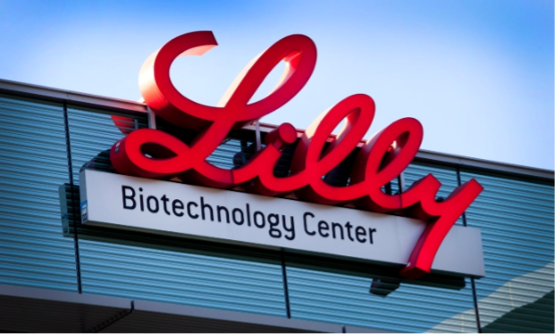CIIE Observation | Eli Lilly’s Two “Focuses”
November 7, 2024
Source: drugdu
 481
481
 Today, the seventh CIIE opened grandly in Shanghai. Every year, the CIIE is an excellent opportunity for global pharmaceutical companies to showcase their latest research and development results and expand international markets, and it is also a core window for insight into Chinese market opportunities. This year will be no exception. So, let's take a look at Eli Lilly, a pharmaceutical company with nearly 150 years of history, and its latest thinking. As an all-around warrior, this year Eli Lilly focused on displaying its latest progress in key global disease areas such as diabetes, obesity, Alzheimer's disease and anti-tumor. In the big and comprehensive layout, Eli Lilly also revealed its two major focuses of development in China: diabetes and obesity, and Alzheimer's disease.
Today, the seventh CIIE opened grandly in Shanghai. Every year, the CIIE is an excellent opportunity for global pharmaceutical companies to showcase their latest research and development results and expand international markets, and it is also a core window for insight into Chinese market opportunities. This year will be no exception. So, let's take a look at Eli Lilly, a pharmaceutical company with nearly 150 years of history, and its latest thinking. As an all-around warrior, this year Eli Lilly focused on displaying its latest progress in key global disease areas such as diabetes, obesity, Alzheimer's disease and anti-tumor. In the big and comprehensive layout, Eli Lilly also revealed its two major focuses of development in China: diabetes and obesity, and Alzheimer's disease.
At this CIIE, Eli Lilly focused on displaying tirpotide. This is not surprising. As Eli Lilly's flagship product, tirpotide is one of the most competitive GLP-1 drugs currently. In terms of weight loss effect, tirpotide is the most powerful GLP-1 among the products on the market. Specifically, in the Phase III SURMOUNT-1 study of obese subjects without type 2 diabetes, after 72 weeks of telpotide treatment, the average weight loss of participants in the 15mg dose group was as high as 22.5% (24 kg); in the Phase III SURMOUNT-2 study of obese subjects with type 2 diabetes, after 72 weeks of telpotide treatment, the average weight loss of participants in the 15mg dose group was 15.7%. When this result was announced, Eli Lilly stated that this was the first research drug with an average weight loss effect of more than 20% in a Phase 3 clinical trial.
Due to its outstanding weight loss effect, telpotide sold well as soon as it was launched. Although the growth rate of the latest third-quarter report was lower than market expectations, the total sales of telpotide still reached US$4.37 billion, and the total amount in the first three quarters was as high as US$11 billion, once again narrowing the gap with Novo Nordisk's semaglutide. Back to China, telpotide was officially approved for use in adults with type 2 diabetes in May this year, and was approved for long-term weight management indications in July, becoming Eli Lilly's first innovative drug approved in China in the field of weight management. It is not difficult to foresee that Eli Lilly will increase its offensive momentum in the GLP-1 field in China.
In addition to tepo, another major focus of Eli Lilly is to continue to introduce the "Memory Cafe" at the CIIE booth. This also shows that Eli Lilly is about to make another effort in the Chinese market: Alzheimer's disease. The special thing about the "Memory Cafe" is that the coffee makers are a special group of Alzheimer's patients. Eli Lilly's intention is, on the one hand, to increase social attention to the unmet needs of AD patients and to actively call for reducing cognitive bias; on the other hand, to pave the way for the launch of its Alzheimer's drug Kisunla.
At present, Kisunla is in the review and approval stage of the National Medical Products Administration and is a potential disruptor in this field. In the phase 3 clinical trial called TRIALBLAZER-ALZ2, the primary clinical endpoint iADRS score of the Kisunla treatment group slowed down by 35%; the secondary clinical endpoint CDR-SB score slowed down by 36%. According to Eli Lilly, this is the first time that an Alzheimer's drug has slowed the cognitive decline of patients by more than 35% in a phase 3 trial. In other words, Kisunla's potential competitiveness is stronger than Leqembi, which has been approved for marketing by Eisai.
In addition, the latter's Phase 3 clinical results showed that after 18 months of treatment, the CDR-SB score of the Leqembi group was 27% lower than that of the stabilizer group. Compared with the improvement of CDR-SB scores, Kisunla has the possibility of being "better". In terms of compliance, Kisunla has a clear advantage. Leqembi is intravenously infused once every two weeks, while Kisunla is administered once every four weeks. Considering the huge market size and the fact that Kisunla is about to be approved for marketing in China, Eli Lilly has begun to accumulate strength.
https://mp.weixin.qq.com/
By editorRead more on
- Gan & Lee Pharmaceuticals’ new PROTAC drug GLR2037 tablets have been approved for clinical trials to enter the field of prostate cancer treatment March 3, 2026
- AideaPharmaceuticals plans to raise no more than 1.277 billion yuan through a private placement to focus on the global clinical development of innovative HIV drugs March 3, 2026
- Giant Exits! Its Star Business Acquired March 3, 2026
- Focusing on cardiovascular and cerebrovascular diseases! OpenMediLead Medical Intelligence Dual Engines Launch Internal Testing, Connecting Drug Development and Clinical Diagnosis in a Closed Loop March 3, 2026
- Innovent Biologics Announces Approval of New Indication for BTK Inhibitor “Pitubrutinib” in China March 3, 2026
your submission has already been received.
OK
Subscribe
Please enter a valid Email address!
Submit
The most relevant industry news & insight will be sent to you every two weeks.



